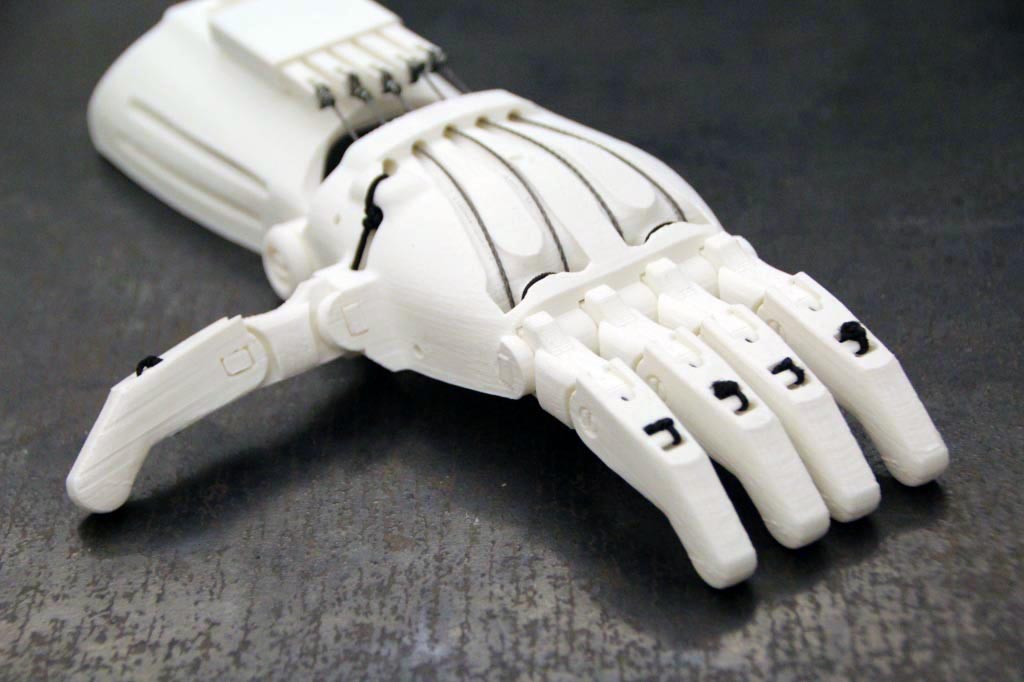Typical prosthetics produced by the medical supply industry can cost thousands of dollars, meaning that they are simply impossible to acquire in many places around the world. But a solid, functioning 3D printed prosthetic can cost as little as $15 in materials and has enabled many people in need of prosthetics to get them for little or no money. For that reason, 250 Intel employees rallied together to produce 100 3D printed prosthetic hands in order to, together with the e-NABLE prosthetic community, ship to Haiti for those in need.
The Intel team was initially inspired by a child named Juan, whom they met at the Mini Maker Faire in Portland, OR. Juan was missing digits, as well as part of the wrist, on his left hand. At the event with the Intel team, e-NABLE founder Ivan Owen presented Juan with a printed prosthetic based on the non-profit’s open source Raptor Reloaded design. Immediately, the team noticed the difference in Juan, “He was like a totally different person. It was a really neat change to see,” Intel engineer Shushi Jain said, explaining that kids with 3D printed prosthetics often come to feel like superheroes. “The prosthetics are interesting in that they give back fingers, but they also give back a sense of self-worth and confidence.” Juan’s parents also noted that, in addition to the improved self-esteem, Juan started to get better grades and show an interest in engineering.
Inspired by this and other stories of 3D printed prosthetics, Shashi Jain and his coworkers at Intel put out a call 3D printer owners at Intel to mass produce 100 prosthetic hands. The first step was to download models that ranged in size from toddler adult. Then, Intel’s Chris Ross put together a makeathon to take advantage of over 60 Intel-owned 3D printers from around the world to mass produce the 3D printable parts. After purchasing hardware kits, screws velcro, and other materials, the crew organized over 250 volunteers from Intel to put the prosthetic hands together in teams of 2 and 3 to put the robotic hands together in just two hours.
Once the prosthetic hands were completed, Intel worked with the Enable Community Foundation, which backs e-NABLE, to send the prosthetics to Haiti. The project was funded entirely by Intel, while the volunteer hours spent on this project has resulted in a matching grant from the Genesis Generation Challenge, which will award e-NABLE with $100,000 to further fund their efforts. This project from the team at Intel is yet another great example of the fun ability and usefulness of 3D printing, as well as its ability to enhance and change people’s lives.
Correction 11/2/15: This article originally credited Intel engineer Shashi Jain with organizing this project; however, it was a collective effort from the Intel team and the makeathon itself was organized by Chris Ross. And, while this article originally stated that the Genesis Generation Challenge funded the event, in actuality, it was funded by Intel and the Genesis Generation grant was awarded separately.






